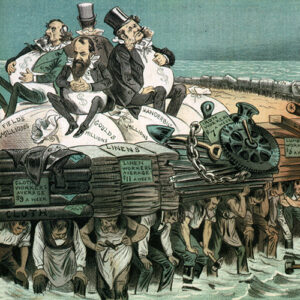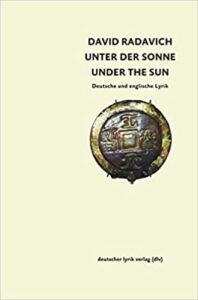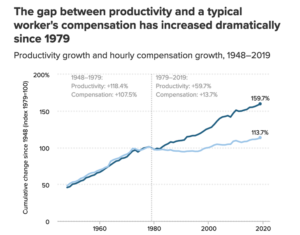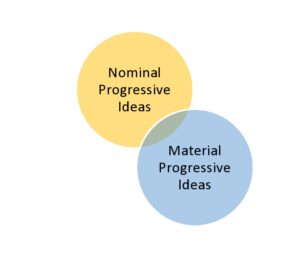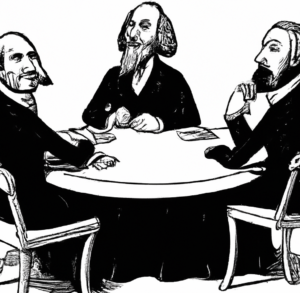Editor’s Notes
de·moc·ra·cy /dəˈmäkrəsē/ noun
-
a system of government by the whole population or all the eligible members of a state, typically through elected representatives.
-
control of an organization or group by the majority of its members.
-
It’s tempting for Western philosophy to categorize democracy as originating in Greece and Rome in 5BCE. But it may have evolved to suit the city-states that made up the Mediterranean in that era. It is plausible to assume that democracy in one form or another arises naturally in any well-bounded group, such as a tribe, if the group is sufficiently independent of control by outsiders to permit members to run their own affairs and if a substantial number of members, such as tribal elders, consider themselves about equally qualified to participate in decisions about matters of concern to the group as a whole. This assumption has been supported by studies of nonliterate tribal societies, which suggest that democratic government existed among many tribal groups during the thousands of years when human beings survived by hunting and gathering. To these early humans, democracy, such as it was practiced, might well have seemed the most “natural” political system.
Representative democracy, that system the United States is still on a knife edge of losing, is at least partially based on the Iroquois Confederacy’s Great Law of Peace, thought by scholars to be adopted in 1142. In 1988, Congress passed a resolution, “The confederation of the original 13 colonies into one republic was influenced by the political system developed by the Iroquois Confederacy,” it reads, “as were many of the democratic principles which were incorporated into the Constitution itself.”
In the age of media silos, do we even discuss the philosophies and ideas that are the foundations of forms of modern governments? Communism, Marxism, Fascism? Democracy seems to be in decline. But worldwide, the results of good elections are being graciously accepted—Kenya, Senegal, Angola, Malaysia, Indonesia. “In the Philippines, the losing candidate, Leni Robredo, the former vice president, was gracious in defeat, telling her supporters, ‘We need to accept the majority’s decision.’ Her concession was a model that should be emulated elsewhere, including in the United States (Washington Post).”
As of November 21, 2022, 59.4% of registered voters say the United States is “off on the wrong track,” an ill-defined poll. What track is that? Fiscal? Policy-wise? Philosophical ideology?
As Plato argues in the Republic, the best government would be led by a minority of the most highly qualified persons.
Thomas Hobbes argued that human nature, likewise, gravitates toward pleasure over pain and, when faced with hardship, the demos will favor an authoritarian leader. An example might be found in the Russian-Ukrainian conflict, where the Ukrainians do not only blame Vladimir Putin for the war, but the Russian people for devolving back into authoritarianism after the fall of the USSR.
John Locke’s philosophy, of which so much is based on the concept of social contract and that states that human nature is based on reason and tolerance, truth and morality, even allowing that people can also be selfish. Most scholars attribute some phraseology in the Declaration of Independence to Locke’s ideology in “Two Treatises of Government.”
David Hume “understood feeling, rather than knowing, as that which governs ethical actions, stating that ‘moral decisions are grounded in moral sentiment.’ Arguing that reason cannot be behind morality, he wrote: ‘Morals excite passions and produce or prevent actions. Reason itself is utterly impotent in this. The rules of morality, therefore, are not conclusions of our reason.’”
Georg Hegel noted that when one idea has reached maturity, the natural inclination of the population swings back to the opposite ideal. “This lesson of the concept is necessarily also apparent from history, namely that it is only when actuality has reached maturity that the ideal appears opposite the real and reconstructs this real world, which it has grasped in its substance, in the shape of an intellectual realm.”
In this issue, we explore the theories in society that subjectify truth, the influence of social media, philosophical pragmatism, the generational representations of societal ideals, the environmental impact of governmental and private sector choices, the factions of progressive arguments, and the evolution of Sisyphus.
As always, we invite you to create a profile to offer feedback and critique, to share these ideas to a wider audience, and to join us in contributing in future issues. Thanks, as always, to our readers for continuing the conversations.

